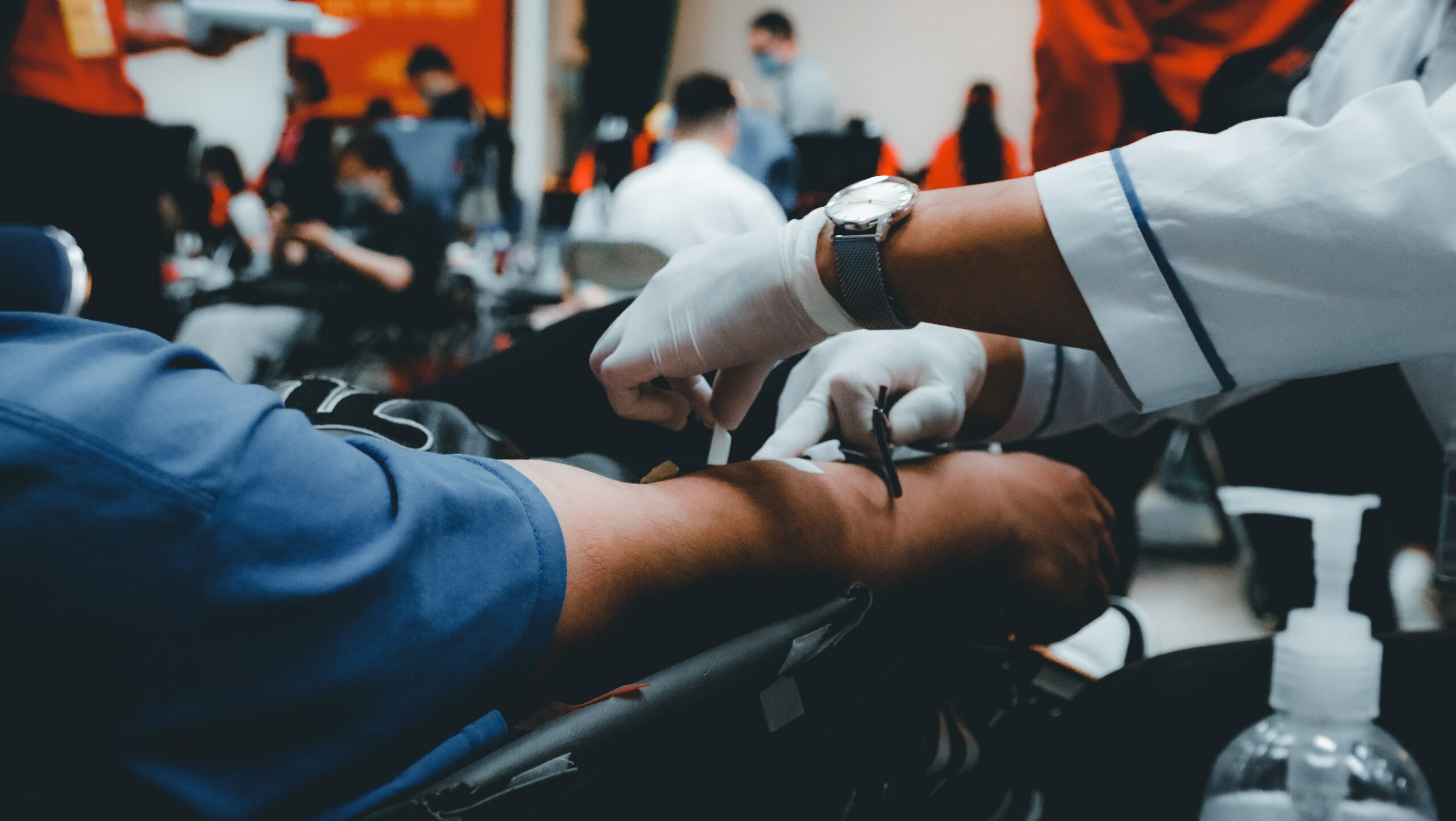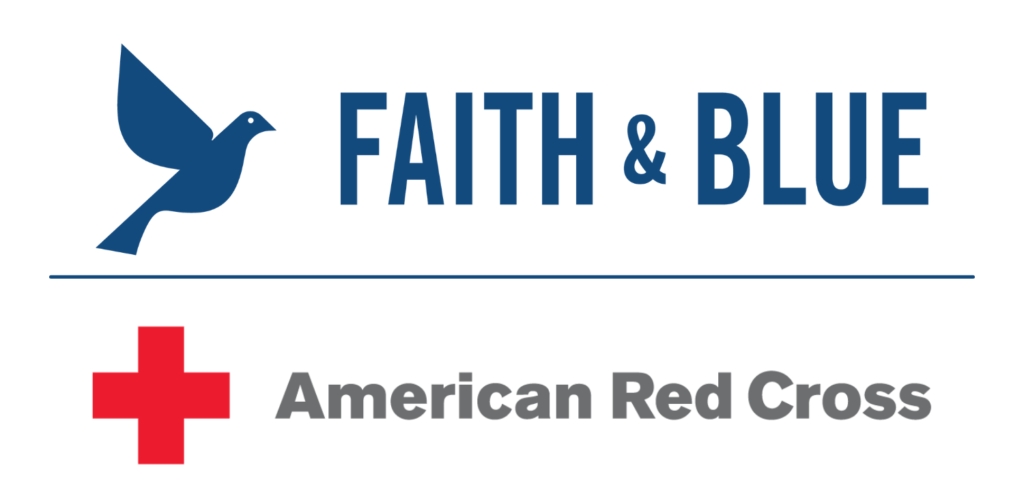

National Faith & Blue Weekend is proud to announce its collaboration with American Red Cross to facilitate a community service projects. This partnership will afford the opportunity for houses of worship and law enforcement agencies to work together to host a blood drive. There is also a special focus for these events to inform the public about sickle cell disease.
What Red Cross will Provide for Each Community Event
• Planning Assistance — The Red Cross representative will work with you to plan and organize the blood drive.
• Recruitment Tools — The Red Cross representative will help you determine how many donors you need and how to recruit
them, including an online scheduling tools for your donors.
• Equipment & Supplies — The Red Cross bring everything we need to your location, set it up and take it down at the end,
including snacks and drinks.
• Trained Staff — The Red Cross staff will confidentially screen donors and collect donations, safely and professionally.
Location Needed
You will need a suitable inside space to host the blood drive — at least 1,200 square feet of open, climate-controlled space with at least four electrical outlets, bathroom access nearby and tables and chairs. A house of worship fellowship hall will serve well.
Role for House of Worship
To provide space to host the blood drive, to recruit volunteers to provide staffing during the drive, to share news about the blood drive to the congregation and recruit donors. The House of Worship can also help advertise the drive to the public. Because Black donors are underrepresented, there is a particular value in reaching out to the black community to become donors to help close the sickle cell gap.
Role for Law Enforcement Agency
To recruit volunteers to provide staffing during the drive, to share news about the blood drive to fellow officers and to recruit donors. A PIO or other public-facing staff position can also work on promoting the drive to the public.
How to Create Connections
A representative from the House of Worship and the Law Enforcement agency should be on hand to recruit donors as they come in. Having shift sign-ups might help. While donors are awaiting their turn, they can be provided with information on Faith & Blue and how the community can work together to create safe and just communities.
Planning Timeline
Step 1: Reach out to the house of worship or law enforcement agency and choose an event coordinator.
Step 2: Email the special account blooddrive@faithandblue.org to let us know that you are interested in hosting a blood
drive, and the contact information for your event coordinator.
Step 3: A member of our staff will reach out to the coordinator and connect them with a local Red Cross representative who
will provide detailed information and support them in preparing and executing your blood drive.
About Sickle Cell Disease:
Who is impacted by sickle cell disease?
Approximately 100,000 people in the U.S. are living with sickle cell disease. Most people with sickle cell disease are African American or of African descent. In fact, the disease affects 1 out of every 365 African American babies born in this country.
What is sickle cell disease?
Sickle cell disease causes red blood cells to be hard and crescent-shaped (like a sickle) instead of soft and round. As a result, it is difficult for blood to flow smoothly and carry enough oxygen to the rest of the body, which may result in severe pain, organ and tissue damage, or even strokes.
How is sickle cell disease treated?
Blood transfusions help provide a lifesaving treatment during a sickle cell pain crisis by replacing sickled red blood cells with healthy red blood cells. This helps deliver oxygen to tissues and organs and unblock blood vessels. Donated blood is the only source of this treatment.
How can I help?
Blood donors have the unique ability to help patients with sickle cell disease. A person with sickle cell disease may need a precise pairing with a blood donor, especially if frequent transfusions are necessary. If a patient receives a transfusion of a blood type that is not a close match, they may form antibodies against the mismatched antigens. To help avoid transfusionrelated complications, a patient is more likely to find the most compatible blood match from a donor of the same race or similar ethnicity.
Did You Know?
- To meet the needs of patients, the Red Cross needs to collect nearly 13,000 blood donations and more than 2,600 platelet donations every day.
- 84% of donations are collected at community-based blood drives, hosted by generous sponsors—close to where people live and work.
To access the full toolkit, visit https://faithandblue.org/resources/. If you have any additional questions, please email Dr. Jonathan Lotson, manager of faith-based and community partnerships at blooddrive@faithandblue.org.